Graham Reid | | 3 min read
Joe Ely: Gallo del Cielo
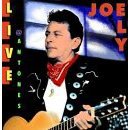
After Joe Strummer's terrific showing at the Big Day Out in 2000, albums by his old band the Clash got a fair thrashing round my way, especially their sprawling three-album set from 1980, Sandinista!
Over six sides of vinyl, they dragged together garage-trash rock and dub reggae, power pop and rockabilly, and most points in between. Strummer said he hoped people would just bang the whole thing on their stereo and let it play like a great radio station covering all kinds of music.
For weeks after the Big Day Out I did just that, reached back to the similarly diverse London Calling and then headed for other Clash-related stuff, notably a couple of early albums by Texas country-rocker Joe Ely, who opened for the Clash at Strummer's invitation on their 79 European tour.
Ely's Live Shots, recorded in London on that tour, is a firecracker rocking country album which references Jerry Lee Lewis (the piano-hammering Fingernails), his history in the legendary Flatlanders band of the Sixties with Jimmie Dale Gilmore and Butch Hancock (Ely has repeatedly delivered definitive treatments of Hancock's She Never Spoke Spanish To Me) and barroom rock (Honky Tonk Masquerade).
"My music," Ely told Time back then in an opinion notable for its understatement, "is a strong aggressive attack."
True enough, but if it were only that, he probably would have slid from sight like most of the punk bands of the period. Ely has been in for the long haul, and shows no sign of slowing down.
In the late 90s I arrived in Austin, the self-described “live music capital of the world” and like everyone felt spoiled for choice when it came to music clubs, bands and singers. What stunned me however was that Jimmie Dale Gilmore was playing a modest solo gig in a small hall at the university.
I went along and about four songs in he quietly noted the last time he’d played this room was with Townes Van Zandt, who had died a few months previous. He said he felt Townes’ spirit was in the room and so put aside the set list and just paid -- and played -- a tribute to his fallen friend. It was very moving.
The following night I caught Ely at Stubbs’, a famous Texas barbecue (and margarita) place with a large outdoor bar (and bbq). The balcony of the restaurant doubled as a stage. Ely and his rocking band -- with a Spanish guitarist hunched over his instrument and invisible beneath a broad-brimmed Stetson -- was extraordinary.
Three years later when the Live at Antone‘s album arrived it finally dawned on me why this guy released a live album at the end of every decade, it was the only way to do justice to the power of his music and presence.
Ely was born in Amarillo in 1947 -- which makes him a child of the rock’n’roll generation -- but spent his formative years in Buddy Holly's hometown of Lubbock, Texas. He was equally influenced by accordion-driven Tex-Mex rock and Spanish soul. He carries within him the flatland spirit of West Texas balladeers and has that same rock'n'roll rebel spirit which once fired up the likes of fellow Texan Waylon Jennings.
In a rich and full life he was down and out in California and New York ("I was mostly singin' in the subways and in front of Bloomingdales"), recorded his first album in 77 just as punk broke across the water, and writes music which references rockabilly and the pure bloodline of country rock as much as it does Hank Williams and Hispanic music. He also has a rare poetic and storytelling character to his lyrics.
I think you call that extra-texture.
He hasn't been out of place opening for the Stones or Tom Petty, playing Farm Aid, writing with John Mellencamp and Dwight Yoakam or appearing with John Prine, Guy Clark and John Hiatt.
He's seldom missed a beat down the years -- his cover of Hancock's re-address of She Never Spoke Spanish as She Finally Spoke Spanish to Me was a minor misstep for both parties -- and is best heard on the live albums.
Live at Liberty Lunch (recorded at the famous Austin rock'n'roll country-punk club) from 1990 was bound to have been in Strummer's collection. It should certainly be in yours, alongside Live Shots of the previous decade.
But of the three live albums (so far) the place to start is with Live at Antone’s.
Ely was in his early 50s when he recorded it in the famous Austin roadhouse. He hadn‘t slowed a bit.
He was still writing classic material (Up on the Ridge, Nacho Mama and Workin' For the Man come from his previous studio album Twistin' in the Wind) and was picking up classic back-catalogue alternative country material.
He fires off signature songs such as Gilmore's Dallas, Robert Earl Keen's The Road Goes on Forever, Tom Russell's cockfighting/ Spanish narrative Gallo del Cielo and goes out with Buddy Holly's Oh Boy!
Extra-texture.
With longtime guitarist Teye (flamenco magic, and the guy in the hat I guess), Lloyd Maines (mesmerising steel player), Jesse Taylor (blistering electric manoeuvres), and accordion-player Joel Guzman, Ely again fired a live shot across the bows of people half his age with his energy and evocation of the spirit which fuelled that pairing with the Clash all those years ago.
Is there a problem with Live at Antone's?
Well, yes.
We weren’t there for it -- and it's only a single disc.
These Essential Elsewhere pages deliberately point to albums which you might not have thought of, or have even heard . . .
But they might just open a door into a new kind of music, or an artist you didn't know of.
Or someone you may have thought was just plain boring.
But here is the way into a new/interesting/different music . . .
Jump in.
The deep end won't be out of your depth . . .

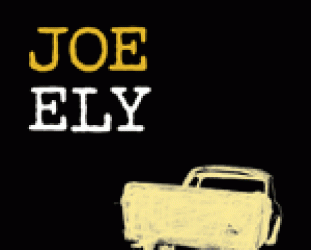
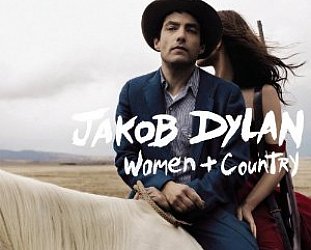
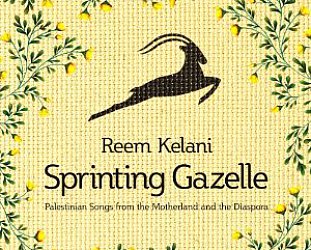

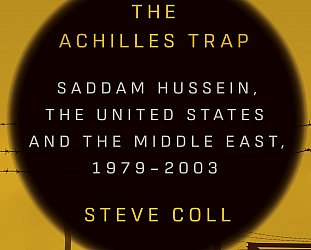
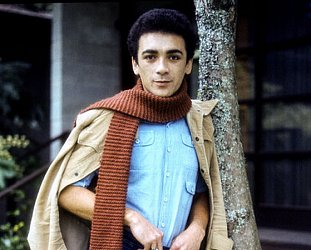
post a comment